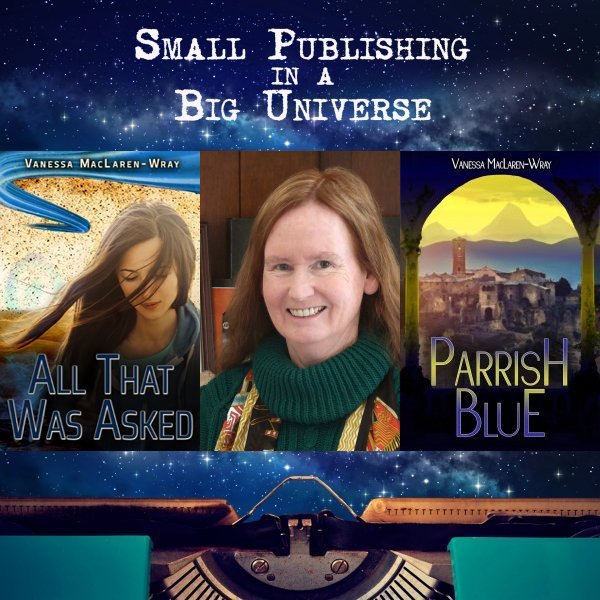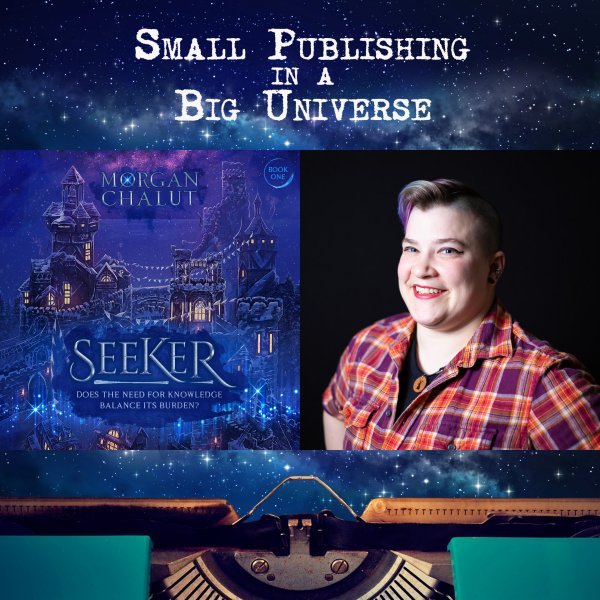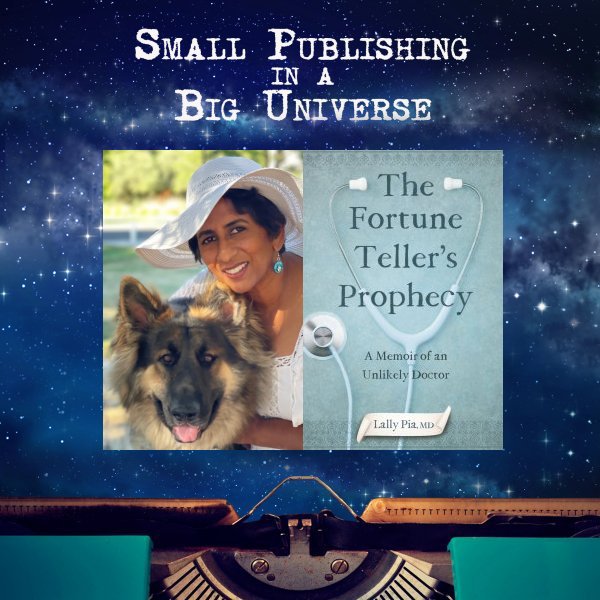[00:00:07] Speaker A: Welcome to small publishing in a big universe. I am your host, Lisa Jacob. This month we have a special episode with our horror panel, just in time for the spooky season. From our sponsors this month, what a Dragon Publishing has Dragong summer 2024 anthology Traveler by Andrea Montague. Graveside, a new imprint, has an anthology, Sol and seven curses, by JC Lee and in their tiny terrors this month, Middleton Manor, by Sandra J. Paul and island of the Drowned, by Rose Strickman.
She will have her revenge.
Xi Fei was orphaned at a young age in China and has been alone ever since. But when she visits Japan and meets Akio, the pair become inseparable. While enrolled in the University of the West Midlands, Xifei falls victim to bullying, abuse, humiliation, and outright negligence, not only from her peers, but even the university staff meant to protect her. When Akio dies under suspicious circumstances, Xi Fei is yet again alone, bereaved, traumatized, and shouldering the weight of grief all on her own. Her breaking point has been reached. Xifei's unbridled rage releases a curse, and its victims are those she holds personally responsible for Accio's death and her own unhappiness at the university. From the professor who mocked her in front of the class to the security guard who assaulted her and even her old flatmate. These seven people will go their separate ways and may hardly remember the young woman they ruined. But they all have one thing in common. None of them are safe. Seven curses is available this month from Amazon, Barnes and Noble, Kobo, smashwords, and other online booksellers. Or support your local independent bookstores by ordering it through bookshop.org dot. For more information, visit their website at graveside dash press.com dot.
[00:02:38] Speaker B: We are starting with some introductions. First of all, my name is Hannah Rebecca Graves. I work at Graveside Press as an acquisitions manager. What that means is that you send a story in and I read it, and I decide whether that story goes into a pile for other people to read it and make choices on it, or if it gets rejected. Horror is pretty much my entire life. That and eyeshadow palettes and stuffed animals.
[00:03:09] Speaker C: My name is Kelly York. I am the kind of jack of all trades at Graveside press. I'm doing covers and handling the position of managing editor, so I'm usually the one you guys talk to about your covers and your edits and all of that kind of fun stuff. I am also big into horror, not quite so much as Hannah Rebecca is. I'm into gaming, tabletop gaming, that kind of stuff. I am also an author so I kind of have my hands in a little bit of everything.
[00:03:43] Speaker D: I'm shy. I write under the name Arlo Z Graves, which was not invented because I submitted to Graveside press. It's a conglomeration of my grandfather's names and the name I used to use working in a restaurant. And I love horror. I write horror fantasy and dark fantasy, and I believe the piece that Graveside press has is definitely more on the fantasy side. But I also write more horror centered horror as well.
[00:04:12] Speaker E: I'm Hannah. I have a piece in soul and a piece as well in bite, both of them forthcoming from graveside. I spend most of my time doing tabletop games and ignoring my to be red pile and chasing around two goblins that live in my house that I'm in charge of.
[00:04:31] Speaker F: I'm Alexa. I write fantasy. Horror, dark fantasy, dark science fantasy.
[00:04:38] Speaker B: Our first question is, what does the word horror mean to you?
[00:04:42] Speaker E: Horror, to me, is catharsis.
It's a way to explore a lot of different things, whether it's repressed emotions, phobias. It's a slow build. It's a culmination of terror. Right. If you're talking about horror writing, it's that sweet spot of dread. And whether it's leading up towards the culmination of a film or a book, it's always centered in catharsis, whether it's the pinnacle or the ending. It's this big outburst of emotion. And I think, to me, that's what horror is, an emotional catharsis.
[00:05:17] Speaker F: Alexa, I'm a terrible person to ask. I feel, because a lot of the time, when other people consume a piece of media and find it to be horror, I don't necessarily agree, because my threshold is so way higher. Right. It's like spicy food. Some people are very sensitive, and then others are not, and don't find anything spicy. I think there's obviously, there's specific genres. Like there's the sloucher movie that we all know should be horror. There are movies in that genre that I find that I watch for fun, and I don't find them dark. If you can make me feel dread, I appreciate that. But finding that piece of media that does that is difficult.
So that's a challenge, finding it for someone who has a high threshold and writing wise, I don't ever set out to write anything dark or anything horrific. I just sit down and write a story, and sometimes it's dark and it needs a content warning, and sometimes it's funny and doesn't. You know, how the brain works? I guess so.
[00:06:30] Speaker D: For me, horror is one of my favorite speculative fiction genres, especially coming at it from a writer's perspective, because it's this tool that you can use to create kind of a separation between real world situations, problems, or themes. And a reader, in a way that I can feel, can get them a lot closer to the problem than they might necessarily be able to get reading nonfiction, if that makes sense. I think it's such a neat tool to be able to discuss real topical issues from a very kind of removed way, if that makes sense.
[00:07:11] Speaker C: Alexa kind of hit the nail on the head for me, and probably for Hannah, Rebecca, too, that our thresholds for horror are pretty hi. So I can read and watch a lot of horror, but not necessarily feel scared, just appreciating the tropes and the way the stories are told. And probably my favorite thing is the unpredictability. Part of the reason I'm not a big fan of reading a lot of romance is because most of them are happy endings, and I like going into something, not knowing how it's going to end and who's going to make it out alive. And are the good guys going to win, and if so, at what cost?
[00:07:51] Speaker F: I wanted to jump in on unpredictability because I think that is when you're looking for, like you and Kelly are saying with the high threshold, especially if you only focus on western media, the unpredictability is going to be very difficult to find, because a lot of what we seeing, what we find in the media that we in the culture that we grow up in, we know so well, and we know the tropes and we know the beats so well that it's difficult to surprise a viewer or reader. And I found it well worth seeking out different horror from different cultures. Japanese manga has wonderful horror stories and manages to hit in a very different way than a lot of western stuff. At least for me, that's the case.
[00:08:41] Speaker B: I love asian horror.
[00:08:42] Speaker C: When you think about it, back in the nineties, probably around the time that the ring and the grudge and some of those started being brought over to America, I think part of what made them so successful was because even though we americanized them, we still kept a lot of the original tropes and the vibes from the original, and it was so different than what we normally saw, and we're a little more familiar with it nowadays because it's more ingrained in our western culture. But I completely agree, it's a lot of fun to watch movies in other languages and from other countries to see the stuff that they find horrific versus what we find horrific. So.
[00:09:20] Speaker B: Or the translated books.
[00:09:22] Speaker C: Or the translated books. Yes. When they're translated.
[00:09:25] Speaker B: Well, for me, horror is all about being unsettled. If something can make me feel unsettled, then I consider it to be horror. But again, I have a ridiculously high threshold. So most of what would be considered horror to others is not horror to me because it's pretty hard to unsettle me. But if you can unsettle me, then that's horror to me.
[00:09:55] Speaker C: If anyone else wants to chime in on this, I also find that there's certain horror that is just really beautiful, especially gothic horror. The imagery and some of the storylines and stuff are just. They may not be horrifying and nightmare inducing, but they are horror, and they are just extremely beautiful to imagine.
[00:10:16] Speaker B: I agree completely. I am starting to get into the horror gothic story scene, and I am enjoying it despite a lack of being unsettled or scared or anything like that.
[00:10:28] Speaker C: Yeah, Alexa.
[00:10:29] Speaker F: All about the love for the monster and the monstrous, like Dracula. If you read the original novel or some people consider Frankenstein a horror novel, I guess, and all about the othering and the other and how we perceive that and how, I think back then, the horror was in how something other could destroy the order, the society, whatever. And, yeah, I really enjoy that, too.
[00:10:54] Speaker C: And everyone loved monster, and nowadays they're not the villains. Nowadays we're like, oh, Dracula, baby girl.
[00:11:02] Speaker D: There was something about Pan's labyrinth and.
[00:11:05] Speaker C: Oh, I love that. Yes.
[00:11:07] Speaker D: At this point in my life, I'm starting to understand that a lot of things that I didn't consider horror might be horror or, like, dark fantasy. I have a really shaky grasp on genre, but things like Pan's labyrinth and some of the other older Guillermo del Toro films, I'm like, yes, that is the vibe. Yeah, they're very, like, allegorical. I love that.
[00:11:28] Speaker C: Pan's labyrinth is probably one of my all time favorite horror movies, I guess you could say.
[00:11:33] Speaker B: For me, there are two different kinds of horror. There is horror in which horror meets the definition and then the horror. That is an entirely different level where it's the unsettling. So I have a whole bunch of horror books that I would consider to be, by definition, horror books, but horror for my own personal definition would be being unsettled.
[00:11:57] Speaker C: I think Guillermo del Toro, a lot of his movies kind of hit that.
[00:12:00] Speaker B: Vibe of he's very good at unsettling.
[00:12:03] Speaker C: Yes.
Do you have a reason why you like writing horror as opposed to other genres? I know several of us write in multiple genres, but when you sit down to write something horary, what is it like? What kind of mood are you in that you want to do that? Let Alexa go first this time.
[00:12:23] Speaker F: Again, I don't ever sit down to write horrors, so it's nothing that I plan consciously. But what you said, Kelly, about the gothic and the atmosphere, I think that's definitely a part of it, because in writing, it's not a visual medium. Right. You have to work with words, and you have to use the readers brains to create the imagery. And there's this idea of not showing the monster and of leaving stuff to the imagination. And I find that work can require a little more that you don't want to be explicit with the gore, if that is part of the story, but you would rather try to use the reader against themselves in a way and to let them create the horrific in their mind. Not that I'm doing any of that consciously, but ideally that's what horror does. It creates a visceral reaction in the reader. I don't know how to do that, but I think that should be the goal in writing horror.
[00:13:29] Speaker D: Between 2016 and now, I've seen and gone through some things that have changed me feeling like there's a loss of control, and that is really coming out when I write. And those are the pieces that are falling more into what would be considered horror. I just gotta get it out somewhere. And if you do it like nonfiction or like memoir, I feel like I just didn't get enough of it out.
[00:13:55] Speaker C: Therapeutic.
[00:13:56] Speaker D: It's gotta be weird. It's gotta be really weird.
[00:13:58] Speaker C: What about you, Hannah?
[00:14:00] Speaker E: Writing horror actually ended up kind of being a plot twist for me. This was the first year that I started actively writing to try to get published, and I had no idea what I was doing. I started writing for different submission calls, like open calls, contests that were all themed, and it didn't matter if I had any practice in it, I was going to try and write it. So I've done the entire gamut of speculative fiction now, and I just find that I fall very easily into horror. I'm somebody who's very prone to nightmares. I mean, the world's been a little traumatic, just a little bit.
It flows a little better. When I write horror, I feel like I'm able to get all of that out. I'm able to kind of practice on multiple levels as well, because I find with horror, there's so much that you can do with the human psyche or fears of, like, going back to what I said about catharsis, there's so many levels to it. You can have a ghost, but what does the ghost represent? Especially drawing from your own trauma, I think, for me, makes horror that much more enjoyable to write. I've always been a big horror reader, but this was the first year that I started writing horror, and I cannot get enough of it.
[00:15:09] Speaker B: Now, why do you write horror, Kelly?
[00:15:12] Speaker C: I mean, I've written across a lot of genres, or I think, as the others have said, it's cathartic, it's therapeutic. It feels like there aren't quite so many rules around what I need to do to make it to market or whatever. I feel like it gives me more room to explore. Back when I was writing contemporary young adult fiction, I always got frustrated because my books often didn't have the happiest of endings, and that was always a problem. My editors were always like, okay, well, this is kind of bleak. We need to turn it around. I'm like, but I don't want to.
I don't have that issue in horror.
[00:15:51] Speaker B: I write horror because I am autistic. So when I say that horror is my special interest, I mean, horror is my special interest. Capitalized it is. It is how my brain is wired. It is all that I am capable of writing or reading.
[00:16:07] Speaker C: That was what I was going to say was that it's also a means of writing out our traumas but still maintaining control of them.
[00:16:14] Speaker A: Oh yes.
[00:16:15] Speaker D: Oh yes.
[00:16:18] Speaker C: Yeah, that was a big one.
[00:16:30] Speaker A: Vengeful spirits, echoes of the past, and tales of redemption converge in this ghostly anthology. A relic of the past wanders the empty halls of an experimental facility. An audio analyst investigates eerie voices in the background of customer calls. And a woman plays with a curse. In Norway, Seoul brings you a collection of 23 stories of grief, fear, fury, and revenge, curated by Hannah Rebecca Graves and edited by Kay York Sol, is available this month from Amazon, Barnes and Noble, kobo, Smashwords, and other online booksellers. Or support your local independent bookstore by ordering it through bookshop.org dot. For more information, visit their website at graveside dash press.com dot.
Thanks again to our guests. We plan on publishing new episodes every second Wednesday of the month. Watch for new episodes around that time. If you want to know more about small publishing in a big universe, visit our
[email protected], and subscribe to our newsletter. Send us your feedback by using the Contact us link. Like us on Facebook spbupodcast. Contact us on XDev at SPBU Underline podcast to find out more about the books and other products featured during this episode, please visit the SPBU Marketplace at SPBU dash marketplace.com. this podcast was recorded and edited by yours truly. Lisa Jacob executive producer is Stephen Radecki. Theme and ad music is provided by Melody Loops. Enhanced transcription services are provided by Lisa Jacob. This month's episode was sponsored by Graveside Press. You can listen to our podcasts on Apple Podcasts, Spotify, Amazon Music, and most of your favorite podcast services. Thank you very much for listening and talk to you soon.


